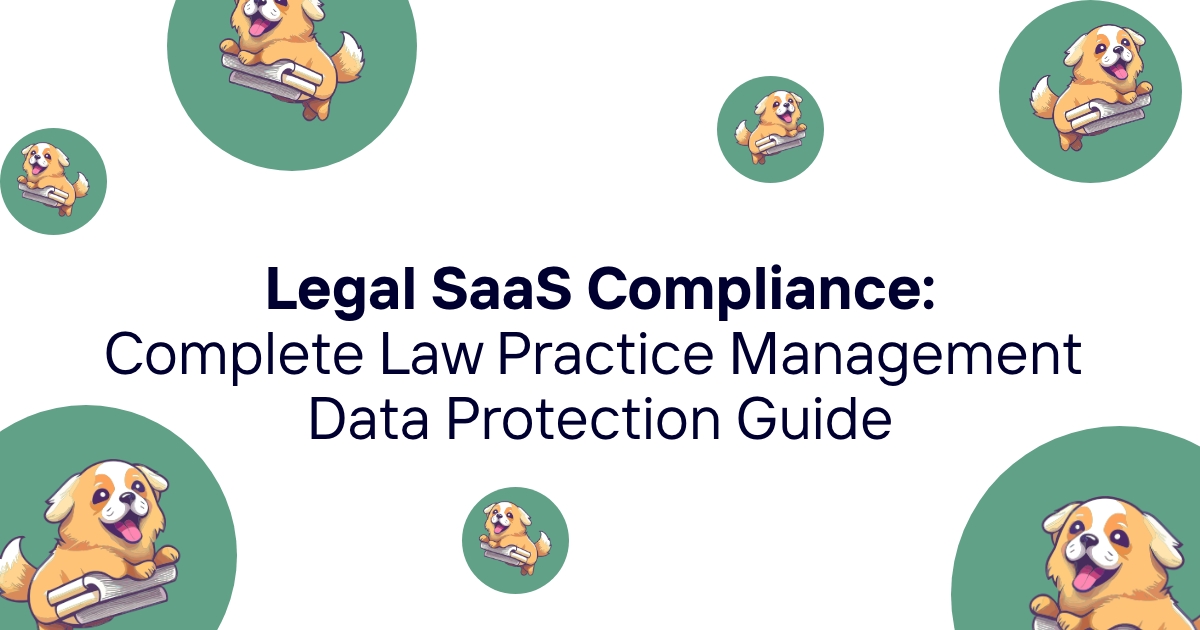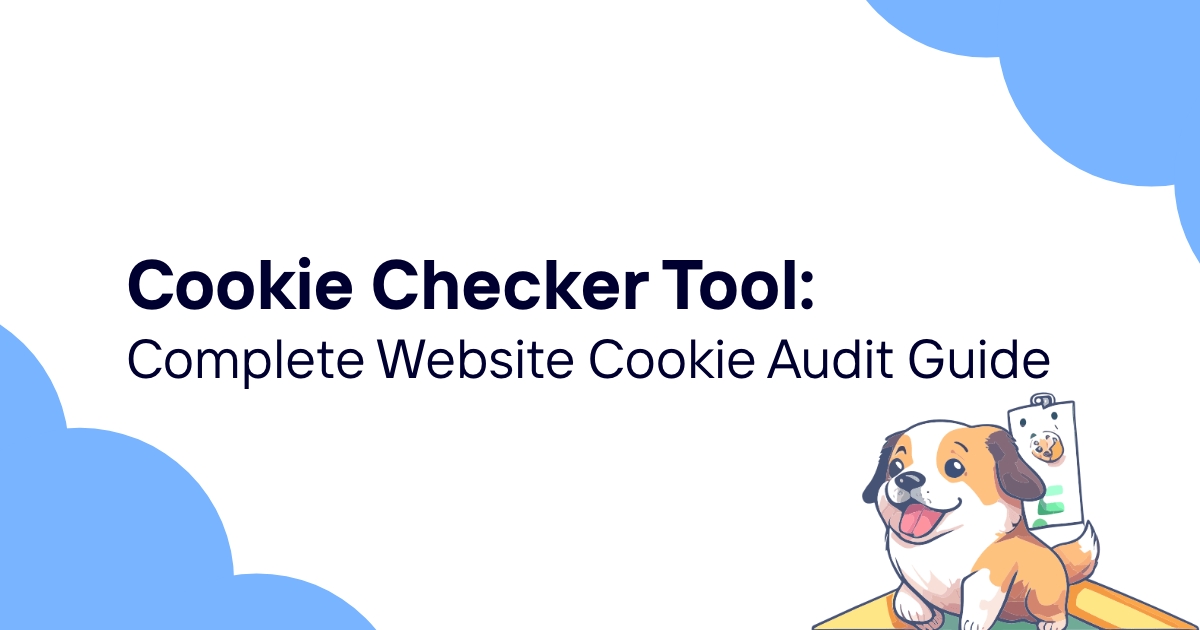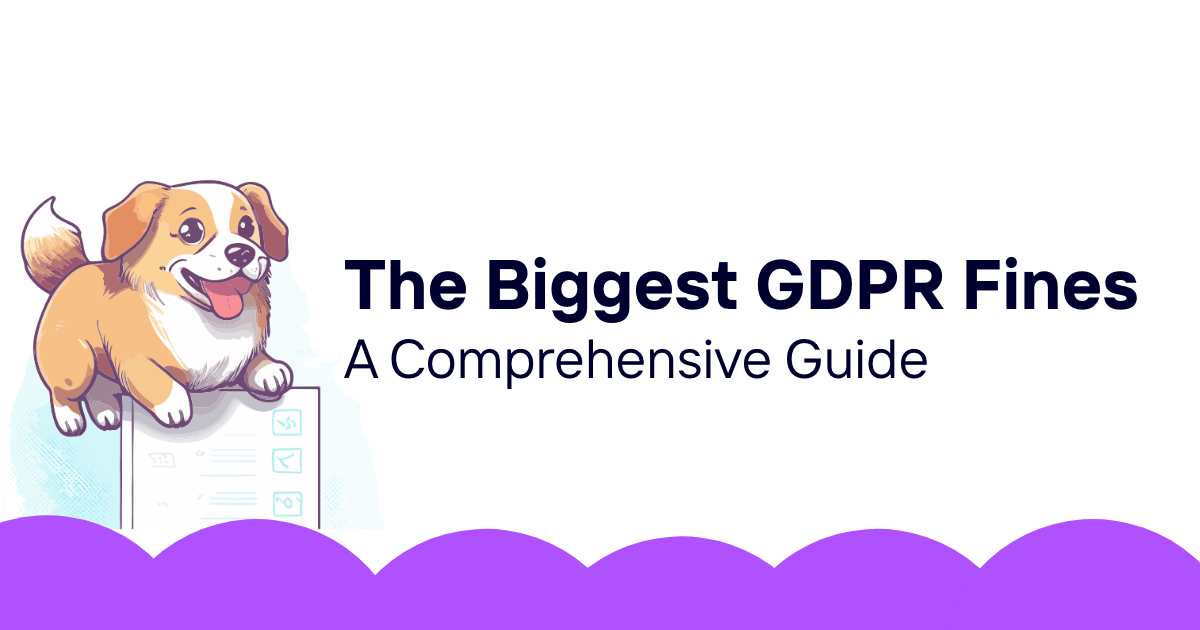Legal SaaS platforms handle some of the most sensitive and confidential information in the business world. Attorney-client communications, case strategies, witness statements, financial disputes, and personal legal matters create data protection obligations that go far beyond standard privacy compliance.
The legal profession operates under strict ethical rules about client confidentiality that have existed for centuries, but modern cloud-based legal technology creates new challenges for maintaining these protections. Bar associations worldwide are updating their ethics rules to address cloud computing, international data transfers, and third-party service providers that didn't exist when traditional confidentiality rules were written.
Legal SaaS compliance isn't just about following privacy laws - it's about enabling lawyers to meet their professional obligations while leveraging modern technology. Get it wrong, and you're not just facing regulatory fines. You could undermine attorney-client privilege, violate bar ethics rules, and damage the fundamental trust relationships that make legal representation possible.
The most successful legal SaaS companies understand that compliance is their core value proposition. Law firms won't adopt technology that creates ethical risks or threatens client confidentiality. Platforms that can demonstrate robust data protection practices and support lawyers' professional obligations gain competitive advantages in a risk-averse market. ComplyDog helps legal SaaS platforms showcase their commitment to professional-grade data protection through comprehensive compliance portals that build confidence with law firms and bar associations.
Legal SaaS Professional Privilege and Privacy
Legal SaaS platforms must navigate complex relationships between privacy laws, professional ethics rules, and attorney-client privilege protections that create unique compliance requirements not found in other industries.
Attorney-Client Privilege in Digital Environments:
Attorney-client privilege protects confidential communications between lawyers and clients from disclosure, but this protection can be waived if reasonable confidentiality measures aren't maintained. Legal SaaS platforms become part of the privilege protection framework.
Implement technical and administrative safeguards that maintain the confidentiality necessary to preserve attorney-client privilege. This includes encryption, access controls, audit logging, and incident response procedures that meet professional standards for legal confidentiality.
Professional Ethics and Technology:
Bar associations have specific ethics rules about technology use, competence requirements, and confidentiality obligations that affect how lawyers can use SaaS platforms. These rules vary by jurisdiction and continue evolving as technology advances.
Research the professional ethics requirements in jurisdictions where your legal SaaS platform operates. Model Rules of Professional Conduct in the US, Solicitors Regulation Authority requirements in the UK, and other professional standards create specific obligations for legal technology providers.
Confidentiality vs Privacy Distinctions:
Legal confidentiality obligations often exceed general privacy law requirements in scope, duration, and enforcement mechanisms. While privacy laws protect personal data, legal confidentiality protects all client information regardless of whether it qualifies as personal data.
Design legal SaaS systems that meet the higher standard of legal confidentiality rather than just privacy law minimums. Business information, legal strategies, and case details might not be personal data but still require strict confidentiality protection.
Conflicts of Interest and Information Barriers:
Law firms must maintain information barriers between clients with conflicting interests, creating technical requirements for data segregation that go beyond standard privacy protection. Legal SaaS platforms need systems that support these ethical walls.
Implement data architecture that can enforce client-specific access controls and prevent inadvertent information sharing between conflicting matters. Role-based access controls, data tagging, and audit systems help maintain ethical walls in digital environments.
For insights on managing professional obligations in regulated environments, check out our travel SaaS compliance guide which addresses similar professional responsibility challenges.
Client Data Management in Law Practice Software
Law practice management software processes comprehensive client information that requires protection under both privacy laws and professional ethics rules, creating dual compliance obligations that must be coordinated carefully.
Client Intake and Onboarding:
Legal client intake processes collect sensitive personal information including financial circumstances, family situations, criminal histories, and other confidential details that require enhanced protection beyond standard business data.
Implement client intake systems with appropriate security controls that protect sensitive information while supporting efficient law practice management. Consider encrypted forms, secure client portals, and access logging for all client data handling.
Matter-Centric Data Organization:
Legal work is organized around specific matters or cases, requiring data management systems that can segregate information by matter while maintaining efficient access for authorized personnel working on each case.
Design matter-centric data architecture that supports both confidentiality requirements and practical law practice needs. Lawyers need quick access to relevant case information while maintaining strict controls over access to other matters.
Client Communication Records:
Legal SaaS platforms often store extensive records of attorney-client communications including emails, phone logs, meeting notes, and document exchanges that require confidentiality protection and privilege considerations.
Implement communication management systems with appropriate retention policies, access controls, and privilege protections that support legal representation while protecting confidential client communications from unauthorized access.
Multi-Jurisdictional Client Privacy:
Law firms often represent clients across multiple jurisdictions with different privacy requirements, creating complex compliance scenarios where the same client data might be subject to different privacy laws depending on client location and legal matter jurisdiction.
Design client data management systems that can handle varying privacy requirements based on client location, matter jurisdiction, and applicable legal frameworks while maintaining consistent confidentiality protection.
Legal Document Management SaaS Compliance
Legal document management systems store and process confidential legal documents that require protection under professional ethics rules, privacy laws, and attorney-client privilege considerations.
Privileged Document Protection:
Legal documents often contain attorney-client privileged communications, work product, and litigation strategy information that requires enhanced protection beyond standard document security. Privilege protection can be waived if confidentiality is not maintained.
Implement document management systems with robust security controls including encryption at rest and in transit, detailed access logging, and privilege tagging systems that help lawyers identify and protect privileged information.
Document Version Control and Audit Trails:
Legal document work requires detailed version control and audit trails to track document changes, review processes, and collaboration activities. These records might themselves be discoverable in litigation and require appropriate protection.
Design document versioning systems that provide necessary collaboration features while maintaining confidentiality and privilege protection. Audit logs should track document access and changes without exposing privileged information to unauthorized users.
E-Discovery and Litigation Hold:
Legal document management systems must support e-discovery processes and litigation hold requirements that preserve documents and metadata when litigation is anticipated or active. These requirements create specific retention and access obligations.
Implement e-discovery support features that can preserve documents and metadata according to legal hold requirements while maintaining confidentiality protection and efficient legal practice operations.
Client Document Access:
Clients need access to their legal documents while lawyers must maintain control over privileged information and work product. Client portal systems must balance transparency with professional confidentiality obligations.
Design client document access systems with appropriate controls that provide clients with their documents while protecting attorney work product, litigation strategy, and other confidential information that clients shouldn't access.
Court Filing and Case Management Privacy
Court filing and case management systems involve sharing legal information with courts, opposing parties, and other participants in legal proceedings while maintaining appropriate confidentiality protection for sensitive client information.
Public Record vs Confidential Information:
Court filings often become public records, but the underlying case management and preparation work remains confidential. Legal SaaS platforms must help lawyers distinguish between information that will become public and information that must remain confidential.
Implement case management systems that help lawyers identify confidential information before court filing and provide redaction tools, privilege logs, and confidentiality controls that protect sensitive information during litigation processes.
Electronic Filing Integration:
Electronic court filing systems involve transmitting legal documents to court systems that might have different security standards and data protection practices than legal SaaS platforms. These integrations require careful security consideration.
Design e-filing integrations with appropriate security controls that protect confidential information during transmission while meeting court system requirements for document submission and case management.
Multi-Party Case Coordination:
Legal cases often involve multiple parties, law firms, and service providers who need coordinated access to case information while maintaining confidentiality and privilege protection between different represented parties.
Implement case coordination features that support multi-party legal work while maintaining appropriate information barriers and access controls that protect each party's confidential information and privilege rights.
International Litigation Considerations:
Cross-border litigation and international legal matters create complex data protection scenarios where legal information might be subject to different privacy laws, discovery rules, and confidentiality requirements in different jurisdictions.
Design international case management with consideration for varying legal requirements across jurisdictions while maintaining consistent confidentiality protection and privilege preservation throughout international legal proceedings.
Legal Billing and Time Tracking Data Protection
Legal billing and time tracking systems process detailed information about legal work, client matters, and attorney activities that requires confidentiality protection while supporting transparent billing and practice management.
Time Entry Confidentiality:
Legal time entries often contain detailed descriptions of legal work that reveal case strategies, client information, and confidential legal advice. This information requires protection even within internal law firm systems.
Implement time tracking systems with appropriate confidentiality controls that protect detailed work descriptions while supporting accurate billing and practice management. Consider access controls that limit time entry visibility based on matter access and role requirements.
Client Billing Information:
Legal billing information reveals details about legal representation including matter types, work performed, costs incurred, and representation scope that requires confidentiality protection beyond standard financial information.
Design billing systems that protect client billing information while supporting transparent fee arrangements and client communication about legal costs. Consider secure client portals for billing access and detailed audit controls for billing information access.
Third-Party Billing Integration:
Legal billing often involves integration with accounting systems, payment processors, and trust account management that must maintain confidentiality while supporting financial operations and regulatory compliance for legal practice management.
Implement billing integrations with appropriate data protection controls that limit third-party access to confidential client information while supporting necessary financial operations and regulatory reporting requirements.
Expense and Cost Recovery:
Legal expense tracking and cost recovery often involves detailed information about case work, travel, research, and other activities that reveal confidential information about legal representation and case strategy.
Design expense management systems that support accurate cost recovery and client billing while protecting confidential information about legal work and case strategy from unauthorized access or disclosure.
Law Firm Communication Platform Privacy
Legal communication platforms must support confidential attorney-client communications while providing modern collaboration features that law firms need for efficient practice management.
Secure Attorney-Client Communication:
Attorney-client communications through digital platforms must maintain the confidentiality necessary to preserve privilege while providing convenient and efficient communication channels for legal representation.
Implement communication platforms with end-to-end encryption, secure authentication, and appropriate access controls that maintain attorney-client privilege while supporting modern communication needs for legal representation.
Internal Law Firm Collaboration:
Law firm internal communication about client matters requires confidentiality protection while supporting collaboration, supervision, and practice management needs within law firm organizations.
Design internal collaboration systems with matter-based access controls that allow appropriate collaboration on client matters while maintaining confidentiality and preventing unauthorized access to sensitive client information.
External Communication Security:
Legal communication with opposing counsel, courts, experts, and other external parties must maintain appropriate confidentiality while supporting necessary legal communication and collaboration requirements.
Implement external communication features with appropriate security controls and audit capabilities that protect confidential information while supporting efficient legal practice and professional communication requirements.
Communication Records and Discovery:
Legal communication records might be subject to discovery in litigation, creating requirements for preservation, production, and privilege protection that affect communication platform design and operation.
Design communication systems with appropriate retention policies, search capabilities, and privilege protection features that support discovery obligations while maintaining attorney-client privilege and work product protection.
Legal SaaS Vendor Due Diligence
Law firms have enhanced due diligence obligations when selecting SaaS vendors because of professional ethics rules, confidentiality requirements, and risk management obligations that exceed standard business vendor evaluation.
Professional Ethics Compliance:
Legal SaaS vendors must demonstrate compliance with professional ethics requirements in jurisdictions where their law firm customers practice. These requirements vary by jurisdiction and continue evolving as bar associations update technology guidance.
Prepare ethics compliance documentation that addresses common professional responsibility concerns including confidentiality protection, competence requirements, supervision obligations, and conflict avoidance in legal technology use.
Security and Confidentiality Assessment:
Law firms require detailed security assessments that address both technical security controls and administrative procedures for maintaining confidentiality. These assessments often exceed standard vendor security evaluations.
Develop comprehensive security documentation that addresses legal industry concerns including encryption standards, access controls, audit logging, incident response, and personnel security measures that protect legal confidentiality.
Business Continuity and Succession Planning:
Law firms need assurance that legal SaaS vendors can maintain service continuity and data accessibility even during vendor business disruptions, acquisitions, or closure scenarios that could affect ongoing legal representation.
Document business continuity planning, data portability procedures, and succession planning that ensures law firms can maintain access to client data and continue legal representation even if vendor circumstances change.
Regulatory and Compliance Support:
Legal SaaS vendors should be prepared to support law firm compliance obligations including regulatory audits, bar association inquiries, and professional responsibility investigations that might require vendor cooperation and documentation.
Prepare compliance support procedures that can assist law firms with professional responsibility compliance while protecting vendor business interests and other client confidentiality requirements.
Ready to build trust with legal professionals? Use ComplyDog and demonstrate your commitment to legal-grade data protection with a comprehensive compliance portal that addresses professional ethics requirements and builds confidence with law firms and bar associations.

















